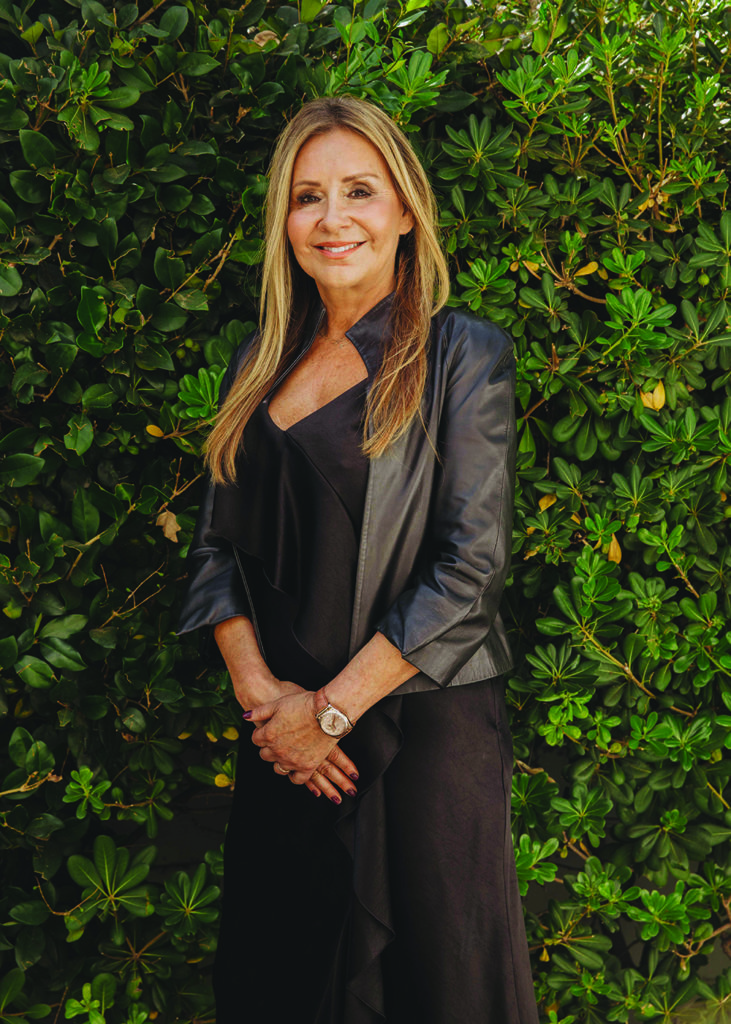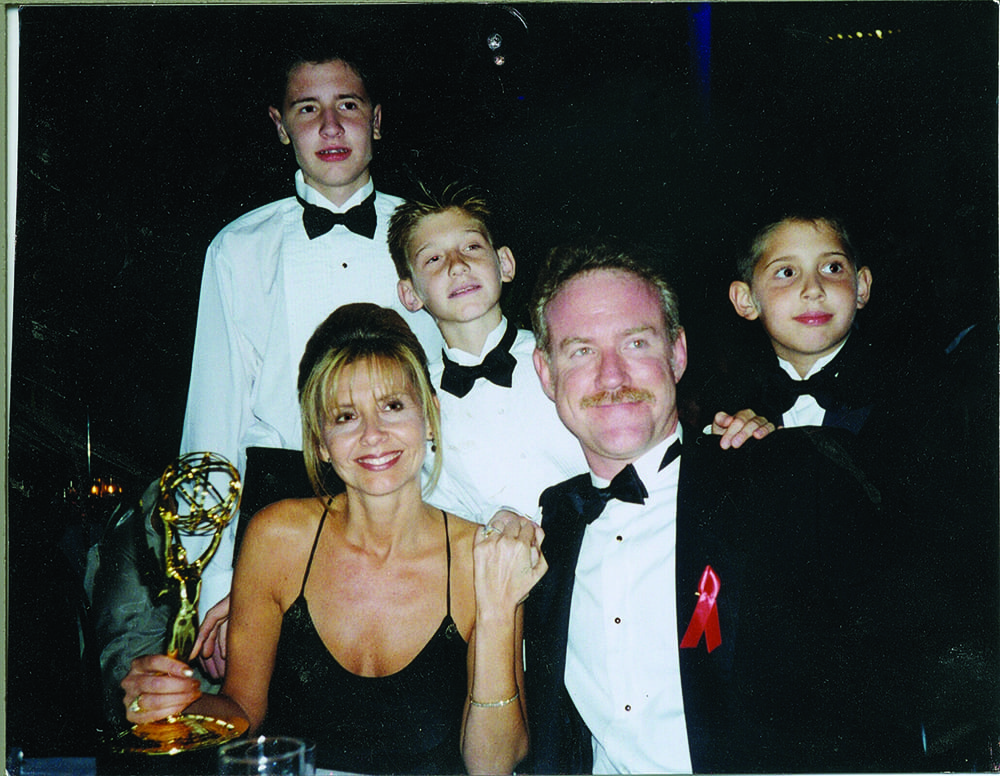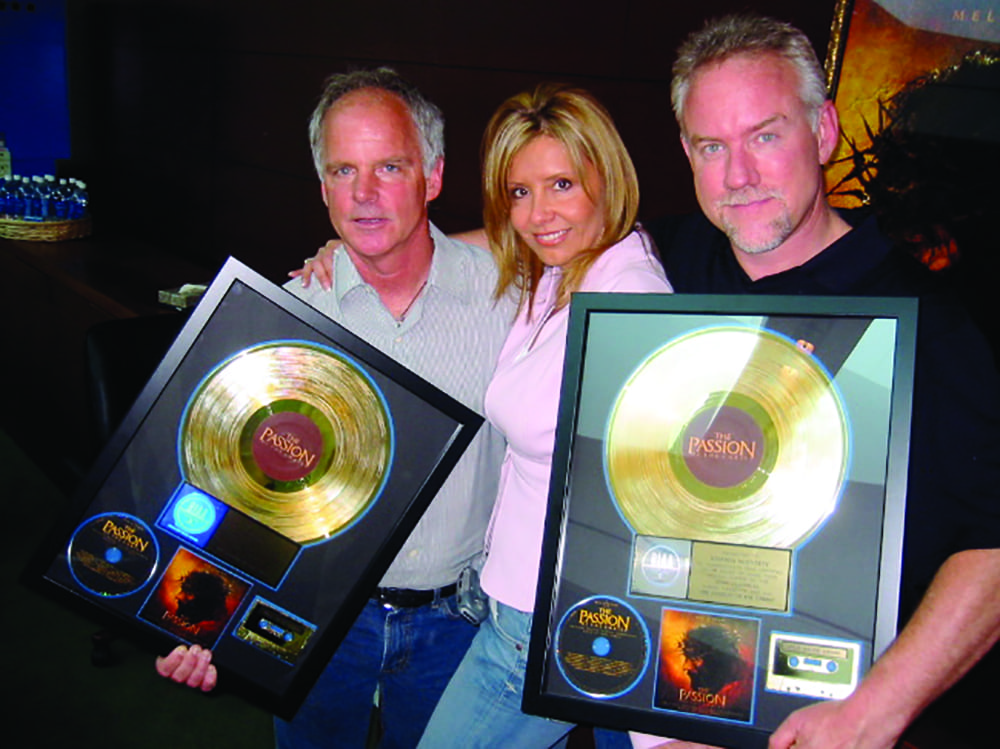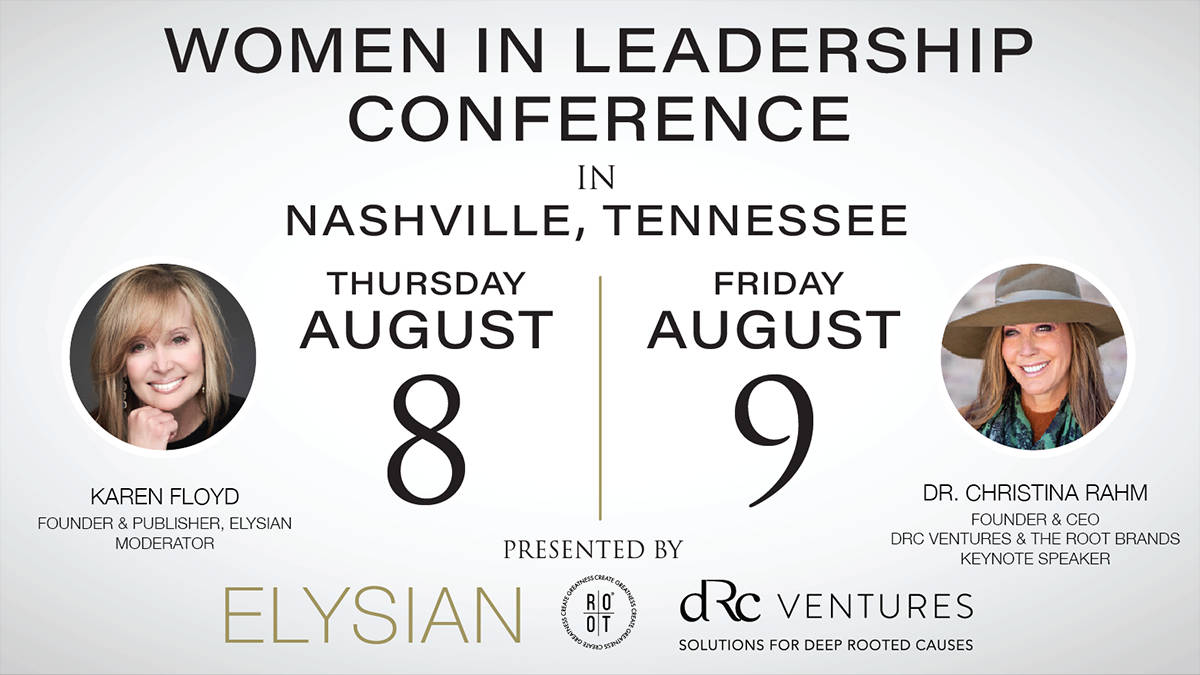Lola Debney, Gave You – Passion of the Christ, The Princess Diaries & The Jungle Book
![]()
At the young age of 21, Lola Debney was busy helping doctors and surgeons as a vocational nurse when her path crossed with John Debney, then 24. John, who at the time could act, sing, play and write music, possessed the perfect combination of talents to become one of today’s most prolific and successful composers in Hollywood. Every step of the way and on equal footing was Lola, who oversaw the entire musical production process. From the moment a client is signed to mapping out the project to being the liaison with managers, publicists, producers, and directors—Lola is there from inception to conclusion. Together, they have worked on highly acclaimed films such as Passion of the Christ, Elf, The Jungle Book, Princess Diaries, Hocus Pocus and more. They stay busy with projects today while working alongside their sons, who have now added their talents to the Debney team.
What a beautiful home you have. You and your husband usually sit outside, but on a calm day like this, which is a rarity, where do you sit?
 We try to sit in the shade and watch the golfers in the morning . . . and argue and have fun.
We try to sit in the shade and watch the golfers in the morning . . . and argue and have fun.
Everyone in your family congregates in your home?
That’s what it’s about. Life is about having them all over, jumping in the pool, feeding everybody and running after all the children. That is what is most important to me.
You are the family matriarch. I’m curious about your sisters.
Yes, I have five sisters, and we’re very close in age. The first four girls are almost a year apart. So, we are like twins, and it was really hard to know your number or order because we were just all together all the time, including my mom. My mom was very young when we were born, so we all grew up together. It was very busy with a lot of screaming and pulling hair but also having a good time. We never really had to search for friends because my sisters were my friends and still are.
And then you had three boys?
John and I have three men now. They’re successful and in their thirties. We have one grandchild.
Where does the idea of family come from? . . . because that is core to who you are.
Yes. I believe that is the result of being raised in a big family. My dad had 11 siblings. My mom seven. So, it was a big family. Always loud, lots of food. There was never a dull moment until you hit that bed, and even then, it got kind of crazy. We grew up in a small home in the valley, and we all shared rooms. We were connected.
Your five sisters all reside within the State of California?
Now, yes, and it’s great.
Three sons . . . boys are different from girls.
Boys are different. I was very excited to have a boy because of the differences. Boys don’t do all the wonderful chatty things that women or girls tend to get into. It was different to find myself folding little boy’s underwear. They seemed a little calmer at times. They weren’t as loud. They were busy but in a different way. I don’t know. I just didn’t think they were as needy.
Did they gravitate toward the music industry and were they proud their dad was touted as one of the world’s most prolific composers and conductors of film, television and video game scores?
Yes and yes. Today, the oldest son works within the immediate business.
How do you get away from the underlying stress of the music industry in L.A.?
Deep breaths, meditation, I go inward. I pray before I get out of bed. I pray before I get into bed. Going inward, reading positive quotes, picking up the Bible, being with the babies. That is a release for me. Yes, it might be physical sometimes, more physical than I anticipated, but, overall, it’s just being in that moment. I think that forces me to find the time to stop and just enjoy life without worrying about a to-do list. I make a list every day, and it’s a good feeling to cross tasks off. I used to be upset when I didn’t complete my list, but, as I get older, I realize that the list will be there tomorrow.
When you were taking an acting class as a young woman, in walked this man named John Debney. Did you know immediately that he was different?
Yes.
How?
He was very confident, very handsome, very sure of himself. At that time, he was into acting as well as music, and my heart pitter-pattered. That was when we first met, and we ended up playing husband and wife. We were forced into this role and held hands, and then we had lunch. Didn’t take very long before we decided to connect and see where it would go.
Did you know how talented John was at that age?
He would sing to me. He used to get on the piano and write songs. He was in bands. So, I’d go see him in Westwood. He was in a rock and roll band, and that was very exciting to me. I was very proud of him.
How old were you both?
I was 21, and he was 24.
And how many years have you been together, and then, ultimately, married?
Together, 38 and a half years and married 37 years.
In Hollywood, that’s quite a feat and equally unusual. Was it hard?
No.
Because you worked together or because of your religious conviction?
Both. I think it hasn’t been difficult in Hollywood, per se, because we worked together for many years. We started to have children at an early age, and I didn’t want to be away from our baby. We decided that John would leave Walt Disney Studios and start his own business as an arranger and composer. From the start, I took over the business. We operated our corporation from our garage.
You were John’s original manager. I’ve read that your talents were equal to, if not greater than, in some ways, his. Your capabilities in management and administration were not always recognized because you were always lifting him up. How difficult was that?
I didn’t think of it that way. I thought we’re a team, and we’re doing this together. Whether I’m picking him up or lifting him up at one moment, or he’s lifting me up, did not matter. We had three children right away, so we were very busy. He believed that I could take care of our babies, home and do the bookkeeping. That allowed him to focus on his music. We would come together, but it was difficult.
You began your career in vocational nursing. What is that?
The position helps doctors and general surgeons in the back of the house do the blood work and other procedures. I worked with the doctors, and I really enjoyed that. When I was young, I always thought I was going to become a nurse because I loved helping people. I loved taking care of people.
Those characteristics are the core to who you really are?
Yes. At that point, I had a family, and I didn’t want to be away from my family, so I chose to join John on his career path. I knew I could do it. I mean I always had. He had faith in me. I had faith in him. We also had our religious faith together, praying and knowing that we would take it a day at a time.
You are both Catholic.
Yes.
Was religion central to kind of keeping your marriage on track?
Yes. For sure, yes.
Catholicism or spirituality?
I think, as I get older, spirituality, but originally, Catholicism.
And your children were raised in the Catholic tradition as well?
Yes.

Lola holding an award they have just received at the Prime Time Emmys with John Debney and their kids Josh, Jason and John Jr.
You were young, with three children, and you made a conscious decision to give up your training and career as a nurse to handle the books for your husband?
Yes.
How many years of struggle did you experience when you were fighting, fighting, fighting to stay afloat before John and you experienced your breakthrough moment? When was that?
It was probably about five, six years into our marriage.
So, you had five rigorously tough years? A new family with three toddlers, a new job, new surroundings…giving up a profession you loved. Then what happened?
He got the big job– the big Hollywood moment. Hocus Pocus.
That was what you consider to be the breakthrough moment?
I think so, particularly for film. John was very successful in television at that point. He had won Emmys and had done a lot of television. But I think in terms of breaking through to the next level, he would say we turned a corner with Hocus Pocus. Before that, his success allowed him to support our family, but it was not easy. We had three babies in the first five years. We bought our first home, which we couldn’t have done without the support of his parents and my parents. They were our rock, the support, the love, feeding us, and helping to take care of our babies when we were at meetings. They helped tremendously, and we needed a team.
During those first five years before Hocus Pocus, was there one project that you both worked on that gave you hope and inspired you to continue? A project that symbiotically told you, this is the right path . . . that gave you that reinforcement to stay on the track . . . because it must have been hard.
Yes, I think there was one. He won an Emmy and was nominated twice for this great program called the Young Writers. At that point, we were traveling to the location, and I think we felt okay, we’re in it. At times, we talked about me having to go back to work outside of our business for financial reasons. But, with the support of our family, we were able to get through those lean months. It really helped us stay together and to realize at a young age how important family is.
Did you ever leave your husband’s side during that time when he was building the business build-out?
No.
You were at every single meeting?
Almost everyone.
What was that like?
I would be the little fly on the wall—the observer. It was important for me to evaluate everything that was going. At the end of the meeting, John and I would always get together and talk about what had transpired. I would tell him, from my viewpoint, what happened because most of the time John’s back is facing the main people in the room. He sits up front with a director, other producers, et cetera, and people can only see his back. I was able to see it all. I sat in the back of the room and could see everything that was going on . . . all the communication and the notes. I would take written notes as well as mental notes. The observations were important because it would be good feedback for him after the meeting.
You were literally working 24 hours a day. You would get up, tend to your children, family would step in, go to meetings, and then you would do a debrief with your husband?
Yes.
And then get up the next day and start it again?
Yes.
Meanwhile, John was receiving Emmys and a lot of accolades. Where were you in that?
It felt good supporting him. Again, I always looked at our relationship as a team. I felt that, when you’re a team, you help each other, you bring each other up, and he just did that in other ways for me.
How?
He is very romantic. He would surprise me with flowers, write me a song or leave me a note. Yes, he was, from day one, appreciative. I think that was his core. I never have met anybody that was such a gentleman at such a young age.
How have you been able to sustain that for 38 years?
Taking time for each other. It might not have been as often as a lot of people do but more often now. Back then, it was taking small moments together. I would say, “Hey, mom, can you take care of the kids, so we might go out and have a nice dinner together?” He’d pick flowers for me or get me little gifts. So, it was small acts showing a little appreciation and a lot of communication. You can’t do it without a lot of communication. When you are young, you can kind of let things build-up, and then you lash out for no reason. With time you realize if you had spoken about that, each of you would have understood the other’s perspective. It’s different. It’s really different.
Do you still communicate?
Oh, yes.
As rigorously?
More so now. Just in a different way.
How is it different?
We have more time alone. There is no longer chatter everywhere, and we are not rushing to make dinner or something. Raising three boys and having cousins around was very hectic. We made sure our house was the hub, and I wanted everybody to come to my home.
So, there was always activity, noise, and chaos that made communication back then different?
Always.
Was there one director that you worked with that stands out of above all the others?
Yes.
Who?
Garry Marshal.
Why?
He was the consummate family man. He was surrounded by his family, very similar to our own life. The family was everything. His entire family was in the movies. His family also assisted in directing. He trusted his family and was surrounded by them. I loved him, and he respected those he worked with. When you came into his world, you were equal. It was not about “I’m the director,” or “I’m this or that.” He had a lovely wife. Unfortunately, Garry has passed away.
How many years ago?
We are heartbroken. Three years ago, I think. Heartbroken because he was part of our family. His office, studio, theater were just five minutes from ours. So, we saw him a lot.
Was he your husband’s mentor?
I would say that, yes.
And his wife was for you as well?
Yes.
Were they equally ensconced in each other’s lives?
Yes. She was very much so.
What role do you have with John now?
I oversee all aspects of music production. It starts with the first meeting. We have a small team at the office, and they are exceptionally talented
Let’s start from the beginning. How do you all get engaged? What is the first point of contact?
John receives a phone call. He’ll say, “Looks like the director wants me to do this movie.” Great. How does this look? What’s the budget? Will it be recorded in town? What does the timeframe look like? How much time do you have to write this music? After we have some questions answered, we map it out. We have a huge calendar, and we go through what the project possibly will look like. It changes most of the time once you get in contact. Before that, we talk about his contract. We contact the lawyer. I oversee that process, talk to them, to his managers. We bring in the publicist, if possible, once we know if we’re going to need that. My position is responsible for getting the team together because everybody has their individual role – I oversee everything.
How long has the current team been in place?
We have always had a small team. Right now, Stephanie has been with us for 13 years, Natalie, five years, and our son, Johnny, is our youngest. He graduated from S.C. Film School. He helps me oversee his dad’s career as well because he knows the producers, directors, and what’s coming out. He’s looking at deadlines. Do you know this director’s doing this? You worked with him on that. He helps put the pieces together. He is also a scriptwriter. He hopes to get one of the scripts sold one day. Josh is our oldest and works in our studio. He is a film composer and has done both film and television. He is really good about stepping in. He’s the rock and roll dude that has the great sounds. His dad might say, “Hey, can you come in and play this little piece? I want to hear how this sounds with you doing it. What do you think about this sound?” They collaborate depending on the film.
How many projects, at any given time, do you all have going?
My goodness. We can have television, a musical like we just did in Austria and a film at the same time. There are many, and John is so good at keeping them fed. We keep them going to maintain the studio. He usually writes from 9:00 to 10:00 to whatever time on any one project. Sometimes, he starts as early as six o’clock in the morning. Then, he will put that away, answer phone calls and go onto another project. We just help keep him on track.
How does he maintain that level of creativity?
I don’t know. He goes inward a lot. I think having a big family around him helps him get out of his head. I can’t imagine living in that.
Where does his talent come from? How did John’s talent evolve?
When he was very young, his parents recognized his gifts. They put a guitar in his hand at age six. At 10 years old, he was in a little band. He took lessons. He took piano. His main instrument is guitar.
How many hours a day does he create?
It depends on the project. Sometimes he goes 10 hours a day. Sometimes he makes an eight-hour day. In the younger days, it used to be 12, 14, 16 hours until. But now, he maintains a schedule of no more than 10-12 hours a day.
When he’s in one of those work zones, where are you?
I’m either at the studio taking care of all the paperwork, taking phone calls, overseeing or speaking with the team at the studio or wondering what that the next day will look like and what that next week will hold We go over the calendar constantly. We’re pretty tight in that little studio. I mean it’s nice.
What do you consider the five most well-recognized projects that you all have worked on?
Okay. Passion of the Christ. Elf. Jungle Book. Princess Diaries. Bruce Almighty. October. Hocus Pocus.
I thought you would say Dora the Explorer.
Well, that project is so new.
Yes, but every young mom will know Dora the Explorer. How labor-intensive is scoring the music and getting it to full production?
It depends on the project. With Dora, we filmed out of the country in London with The Philharmonic, which is always an incredible experience. Their musicians are fabulous. LA’s
musicians are amazing as well. The production wanted to go to Abbey Road, which is classic. Just the respect that they give the Hollywood composer is beyond what we could ever imagine. When John is there and conducts, he commands the orchestra. They work long, hard hours. The last time with Dora was a triple session, which is three hours, and they don’t take long breaks. It is not like L.A. where you have a union, and breaks are mandated. They worked nine hours straight basically with little breaks here and there.

In 2004, Lola and John at the Sony Classical Record Company with Steve McEveety, the producer of The Passion of The Christ.
Do you stay in the room during all that?
Yes, I’m in the orchestra as well.
So, you really are responsible for the entire scoring cycle—from inception to conclusion?
Yes.
At what point will this chapter end?
I don’t know when that point will be.
You don’t think about it?
I don’t think we think about it. At this point in our careers, John really trusts my opinion on whether or not he should take a project. I think that trust is really important. John will never stop writing. I think I will never stop lifting him up and taking care of him. No one really knows what will happen in the future. Writing is his soul, you know.
How do you make that decision—yes or no—to accept a new project? Is it budget-driven, or is it emotional?
I think it’s more emotional. It depends on the future and the past . . . if we’ve had any connections with the studio or the director or producer. They call him up and say, “Do you think you can do me a favor?” That is the majority of what we do now.
Do you turn away a lot of work?
Yes.
One in five, one in ten? How many “turn-aways”?
One in ten.
Would you have ended up in this career had it not been for John?
Probably not.
Do you think that that’s providence, or do you think that that is just hard work?
I think it’s a bit of both.
What brings you the most joy?
Being around all the babies and Dallas, our grandchild.
Your greatest accomplishment?
My children.
What was your favorite movie?
Passion of the Christ.
That project was a real love for you and your husband. Why?
I think it deepened our faith. I believe that John was meant to score this incredible, deep, spiritual film. It was Mel Gibson’s version of the Bible, and it was his vision. It was a Hollywood movie, but it brought us to just a deeper level of faith. When we thought “times were tough, and woe is me,” it brought us to reality.
Do you have a constant conversation with God?
Constant.
What do you say? Are these just small little moments, or do you repeat the same thing?
Both. I repeat, “Our Father, Hail Mary” to prepare me for meditation. I listen to Christian music. Lately, there is silence when I’m driving. I just go inward. I pause to listen to my inward thoughts.
Do you feel blessed?
Absolutely. Every day. I am so grateful.
You have an opportunity to talk to your younger self right now. What is the one piece of advice that you want to give yourself?
You are going to make me cry. You know what? Trust. Trust yourself. Trust your intuition. Continue to do that, always.

